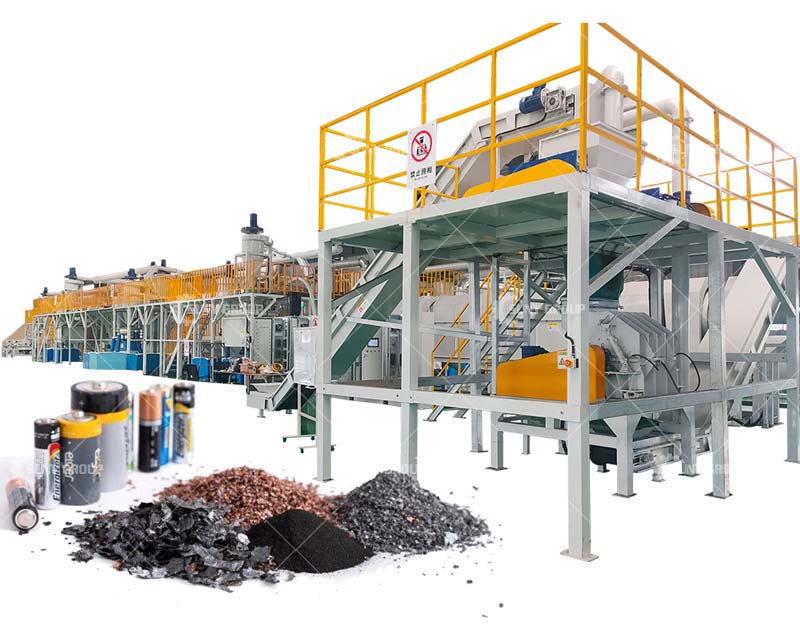With the popularity of electric vehicles and electronic devices, the demand for lithium-ion batteries has surged, and the problem of handling waste batteries has become increasingly prominent. An efficient lithium-ion battery recycling system can not only reduce environmental pollution, but also realize the recycling of resources, which has important environmental and economic value.
System configuration and processing process
The lithium-ion battery recycling system mainly includes four major links: collection, transportation, disassembly, and material recycling. First, waste batteries are collected through recycling sites or manufacturer recycling plans; then, the batteries are safely transported to professional processing plants. During the disassembly stage, the batteries are discharged, crushed and sorted to separate metal shells, plastics and electrode materials. Finally, precious metals such as lithium, cobalt and nickel are extracted using hydrometallurgical or pyrometallurgical technology, and the recovery rate can reach more than 90%.
Environmental significance
Battery recycling can significantly reduce heavy metal pollution and carbon emissions. If directly landfilled, heavy metals such as cobalt and nickel in the battery will seep into the soil and water sources, while incineration may release toxic gases. Recycling 1 ton of lithium batteries can reduce the demand for about 5 tons of ore mining and reduce energy consumption by more than 70%, helping to achieve the goal of carbon neutrality.

Personal economic benefits
Consumers can get financial rewards through "trade-in" or recycling incentive programs. For example, some manufacturers offer discounts or cash back, while recycling companies pay fees based on the residual value of the battery, turning waste batteries into treasure.
Future development
With technological advances, recycling efficiency will be further improved, and automated sorting and direct recycling technologies (such as repairing electrode materials instead of decomposing them) will reduce costs. It is expected that by 2030, the global lithium battery recycling market will exceed 100 billion yuan and become an important pillar of the green economy.
Lithium-ion battery recycling is not only an environmental protection demand, but also a key to resource strategy. Only by building a complete recycling system can a sustainable future be achieved.
Thank you for your interest in suny group. If you want to learn more about our E-waste recycling plant, copper wire recycling machine and other machines, Contact us now to find out what we can do for you next project!E-mail:sunymachine@gmail.com | Whatsapp:+8613674945231